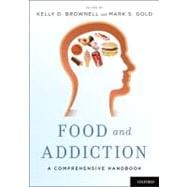
Note: Supplemental materials are not guaranteed with Rental or Used book purchases.
Purchase Benefits
What is included with this book?
| Acknowledgments | p. xi |
| Contributors | p. xiii |
| Introduction | p. xxi |
| The Neurobiology and Psychology of Addiction | |
| Animal Models of Drug Addiction | p. 3 |
| Human Laboratory Models of Addiction | p. 14 |
| Neuroanatomy of Addiction | p. 20 |
| Genetics of Addiction | p. 30 |
| Epigenetic Changes in Addiction and Eating Disorders | p. 34 |
| Feeding Systems and Drugs of Abuse | p. 40 |
| Co-Occurring Addiction and Psychiatric Disorders | p. 47 |
| The Study of Craving and Its Role in Addiction | p. 53 |
| Stress and Addiction: A Brief Overview | p. 59 |
| Regulation of Eating and Body Weight | |
| The Changing Face of Global Diet and Nutrition | p. 69 |
| Weight and Diet among Children and Adolescents in the United States, 2005-2008 | p. 81 |
| Genetics of Body Weight Regulation | p. 90 |
| Central Regulation of Hunger, Satiety, and Body Weight | p. 97 |
| Peripheral Regulation of Hunger and Satiety | p. 103 |
| Food Intake and Metabolism | p. 108 |
| Neuroendocrine Regulation of Energy Balance | p. 113 |
| Prenatal Programming of Obesity: Role of Macronutrient-Specific Peptide Systems | p. 119 |
| The Biology and Psychology of Taste | p. 126 |
| Leptin Gene Therapy for Hyperphagia, Obesity, Metabolic Diseases, and Addiction: A New Opportunity | p. 131 |
| Lessons from Prader-Willi Syndrome and Pathological Brain Reinforcement | p. 138 |
| Environmental Toxins as Triggers for Obesity | p. 143 |
| The Special Case of Sugar-Sweetened Beverages | p. 147 |
| The Impact of Portion Size and Energy Density on Eating | p. 154 |
| Specific Environmental Drivers of Eating | p. 159 |
| Research on Food and Addiction | |
| Food Addiction and Diagnostic Criteria for Dependence | p. 167 |
| Phylogenetic and Ontogenetic Contributions to Today's Obesity Quagmire | p. 172 |
| Food Reward | p. 178 |
| Dopamine Deficiency, Eating, and Body Weight | p. 185 |
| Genes and Reward Circuitry as Predictors of Eating and Weight Gain | p. 194 |
| Hormones, Hunger, and Food Addiction | p. 200 |
| Bingeing, Withdrawal, and Craving: An Animal Model of Sugar Addiction | p. 206 |
| Incubation of Sucrose Craving in Animal Models | p. 214 |
| Linking versus Wanting Food in Human Appetite: Relation to Craving, Overconsumption, and "Food Addiction" | p. 220 |
| The Psychology of Food Cravings | p. 226 |
| Is Sugar as Addictive as Cocaine? | p. 231 |
| Caffeine, Addiction, and Food Consumption | p. 238 |
| Interactions between Smoking, Eating, and Body Weight | p. 244 |
| Interactions between Alcohol Consumption, Eating, and Weight | p. 249 |
| Relationships between Drugs of Abuse and Eating | p. 254 |
| Stress and Reward: Neural Networks, Eating, and Obesity | p. 266 |
| Public Attitudes about Addictions as a Cause of Obesity | p. 273 |
| Clinical Approaches and Implications | |
| Clinical Assessment of Food and Addiction | p. 281 |
| Psychological Treatments for Substance Use Disorders | p. 285 |
| Behavioral Treatments for Obesity | p. 290 |
| Pharmacotherapy of Addictive Disorders | p. 296 |
| Pharmacotherapy for Obesity: Current and Future Treatments | p. 303 |
| Surgical Treatments for Obesity | p. 310 |
| Treatment of Alcohol and Drug Dependence in 2011 and Relevance to Food Addiction | p. 318 |
| Treatment of Binge Eating Disorder | p. 329 |
| Exercise Addiction and Aversion: Implications for Eating and Obesity | p. 336 |
| New Treatments for Obesity Based on Addiction Models | p. 342 |
| From the Front Lines: The Impact of Refined Food Addiction on Well-Being | p. 348 |
| From the Front Lines: A Clinical Approach to Food and Addiction | p. 354 |
| Food and Addiction: A Personal Story | p. 360 |
| Public Health Approaches and Implications | |
| Taxes on Energy-Dense Foods to Improve Nutrition and Prevent Obesity | p. 367 |
| Addressing Disparities Related to Food Intake and Obesity | p. 376 |
| Is Food Advertising Feeding Americans' Sugar Habit? An Analysis of Exposure to Television Advertising for High-Sugar Foods | p. 382 |
| Environmental Interventions to Reduce Overeating in Children | p. 388 |
| Nutrition Practices in Schools | p. 394 |
| Legal and Policy Implications | |
| Legal and Policy Implications: Litigation | p. 401 |
| Legal Implications: Regulating Sales and Marketing | p. 406 |
| What Lessons for Food Policy Can Be Learned from Alcohol Control? | p. 411 |
| Policy Lessons Learned from Tobacco | p. 416 |
| Lessons from Drug Policy | p. 423 |
| Global Policies Affecting Diet and Obesity | p. 430 |
| Concluding Comments | |
| Food and Addiction: Scientific, Social, Legal, and Legislative Implications | p. 439 |
| Index | p. 447 |
| Table of Contents provided by Ingram. All Rights Reserved. |
The New copy of this book will include any supplemental materials advertised. Please check the title of the book to determine if it should include any access cards, study guides, lab manuals, CDs, etc.
The Used, Rental and eBook copies of this book are not guaranteed to include any supplemental materials. Typically, only the book itself is included. This is true even if the title states it includes any access cards, study guides, lab manuals, CDs, etc.